Introduction to Basic Electrical Motors, Switchgear, and Motor Starters
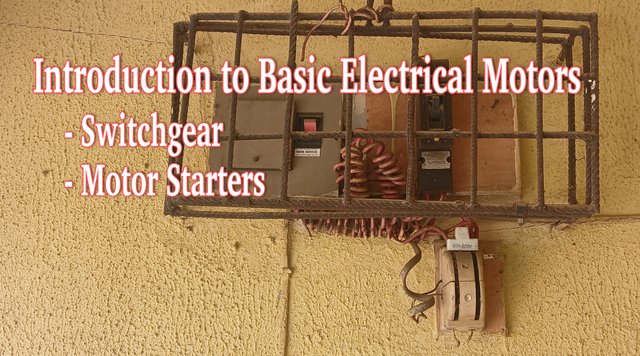 Captured and edited With Galaxy-A15
Captured and edited With Galaxy-A15
Basic Electrical Motors, Switchgear, and Motor Starters.
Electrical motors, switchgear, and motor starters are the backbone of modern industry, Often used for powering many thing from manufacturing lines to commercial buildings. In this introductory lesson, we have looked into the basics of these interconnected systems, discussing AC and DC electricity, establishing the deffrent motor types, switchgear configurations, and starter technologies. Our understanding of these fundamental concepts, will help is gain a solid foundation for working more efficiently with electrical power systems.
Homework [Task A]
Differences between current and voltage.
| Current | Voltage |
|---|---|
| Current, measured in ampere, is the speed or rate of flow of electrons when measured per second. | voltage, measured in volt, is the electronic pressure that builds up between two points. |
| the flow of current is driven by voltage | voltage is the potential difference between two points |
Differences between AC electricity and DC electricity.
| AC electricity | DC electricity |
|---|---|
| AC is a type of power that alternates it's direction of flow, having life and nutral. | DC is a type of electricity that maintains a constant direction of flow, having positive and negative. |
| AC electricity is generated by an AC motor. | DC electricity is generated by an DC motor. |
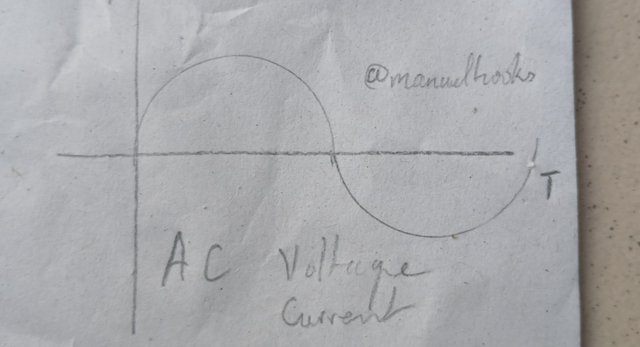 | 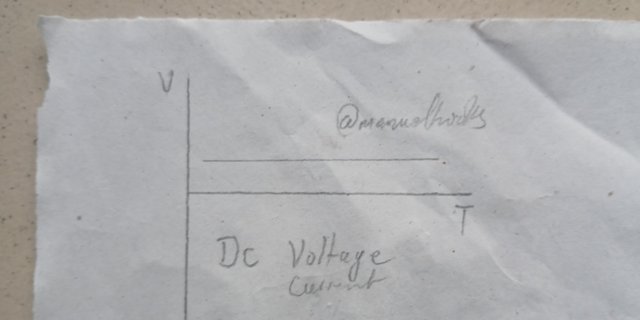 |
|---|
Difference between an AC motor and a DC motor.
| AC Motor | DC Motor |
|---|---|
| Uses Alternating Current (AC). | Uses Direct Current (DC). |
| has no commutator or brushes. | Makes use of commutator and brushes. |
| makes use of rotor and stator design. | Used an armature and field coil design. |
| The speed is controlled using Frequency variation. | Speed is controlled using voltage variation. |
| Suitable for: Fans, pumps, compressors, and industrial applications. | Suitable for: Automotive, robotics, medical devices, and portable equipment. |
| . | . |
Differences between DOL, Star-Delta and forward reverse starter.
| DOL | Star-Delta | forward reverse starter. |
|---|---|---|
| Suitable for small motors . | Suitable for medium-sized motors. | Suitable for applications like conveyor belts, pumps, and machinery. |
| High starting current. | Reduces starting current. | Can be used with DOL or Star-Delta starters. |
Comparison Table:
| Starter Type | Starting Current | Speed Control | Direction Control | Motor Size Suitability |
|---|---|---|---|---|
| DOL | High | No | No | Small |
| Star-Delta | Medium | No | No | Medium |
| Forward-Reverse | Varies | No | Yes | Varies |
Homework [Task B]
Write the names and pictures of the electrical switchgear used in your home.
Change over switch
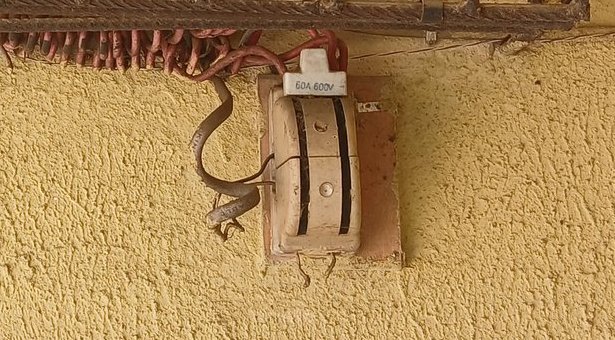
Used to switch between available power sources
Main circuit breaker
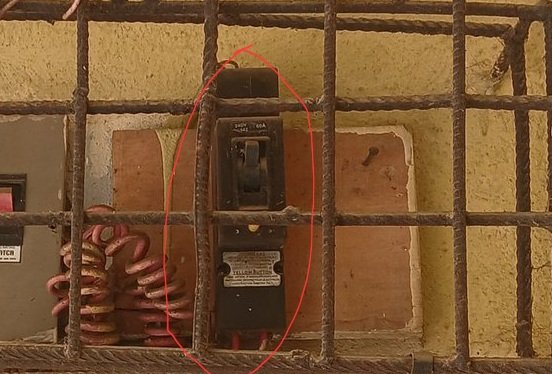
This controls the whole appartment, it also trips off when lightning striks
Main pannel
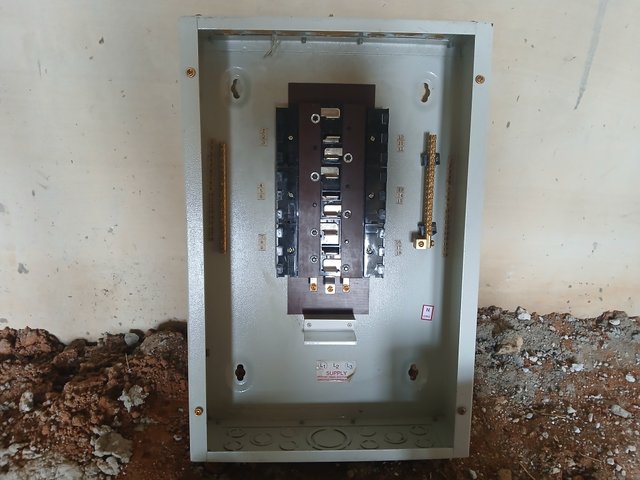
This is a holder for other switchgear in the appartment
Main switch in pannel
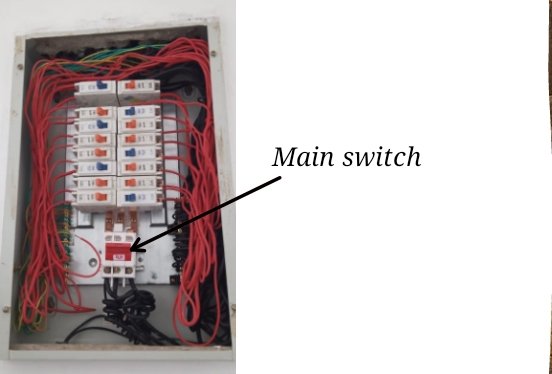 this main switch is a triple pole circuit breaker
this main switch is a triple pole circuit breaker
Main pannels wirh auxiliary breaker
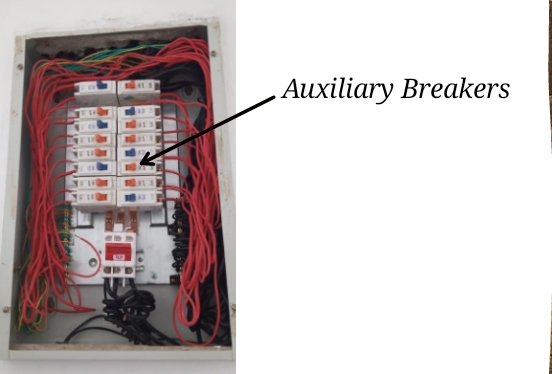 single pole breaker that protrcts home outlets with different ampere
single pole breaker that protrcts home outlets with different ampere
Homework [Task C]
Make the specifications of the motor shown below.
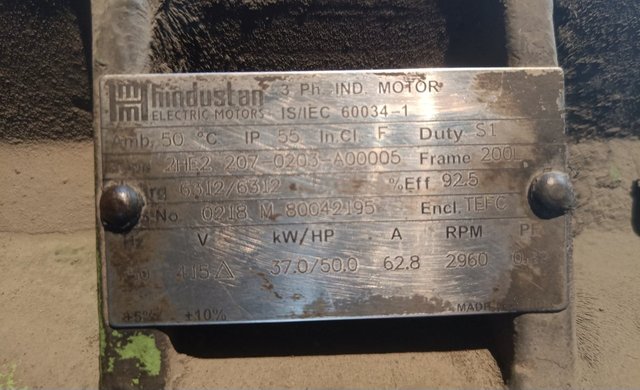
KW= 37 KW
HP = 50 HP
RPM = 2960 RPM
Ampere = 26.8 A
Voltage = 415 V
Hz = 50 Hz
PF = ?
Power Factor (PF) was not clear enough to see so i used the formula
PF = kW / kVA
I have KW as 37
To get kVA i deed KVA = (√3 x V x I) / 1000
kVA = (√3 x 415 x 26.8) / 1000
kVA ≈ 45.12 kVA
Recalculating using the 3-phase formula
KVA = (√3 x V x I) / 1000
kVA = (√3 x 415 x 26.8) / 1000
kVA ≈ 45.12 kVA
PF = kW / kVA
PF = 37 kW / 45.12 kVA
PF ≈ 0.82
Find out the current of your home's 220 volts, 5 HP motor. (Follow Figure 2.3)
Using the formula
I = P/V x Efficiency x PF
I = 5 x 746/ 220 x 0.90 x 0.82
I = 3730/ 162.36
I = 22.97Amps
Homework [Task D]
Draw the power circuit of the star delta starter and name the devices used. (Follow Figure 2.5)
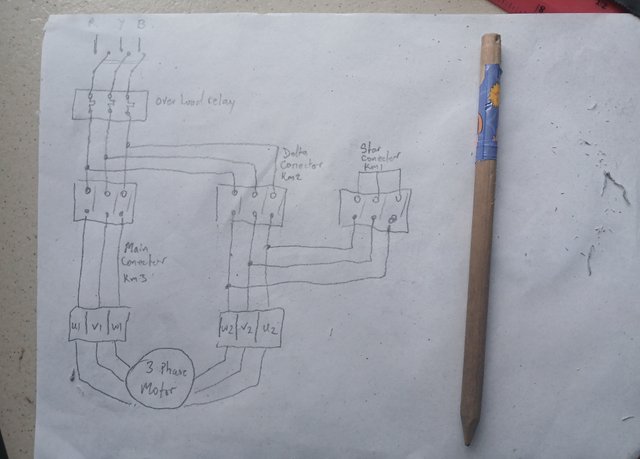 The Star-Delta starter!
The Star-Delta starter!
I now have a better understanding of a star delta connection. This diagram in more explanatry.
One of the popular starting method for many 3-phase induction motors.
It Initially startup in Star (Y) configuration but once the motor has run to a predetermined speed of about 30-40%, the starter switches to Delta (∆) configuration.
It may wark as an open transition (OT) where the star-delta switching occurs with a brief interruption or as a closed Transition (CT) in which the star-delta switching occurs without interruption.
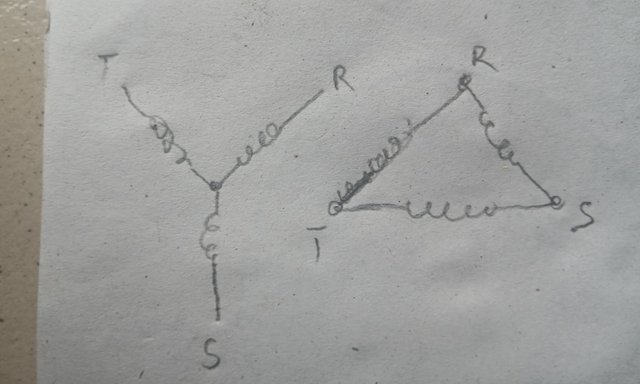
When it was presented like this, i did not realy understand it.
Conclusion:
Thank you for the training and instructions, I will be expecting some corrections and suggestions.
A big thank you to the steemit team for the support and encouragement and for organizing this training. I wish more of this could continue.
Invitation to contest
I am inviting @bossj23, @jozzie90, @josepha and @oasiskp
##electricity-s21w3 #steemexclusive #nigeria #burnsteem25 #learnwithsteem
#electronics #club5050
https://x.com/manuelhook41759/status/1858099286300393671